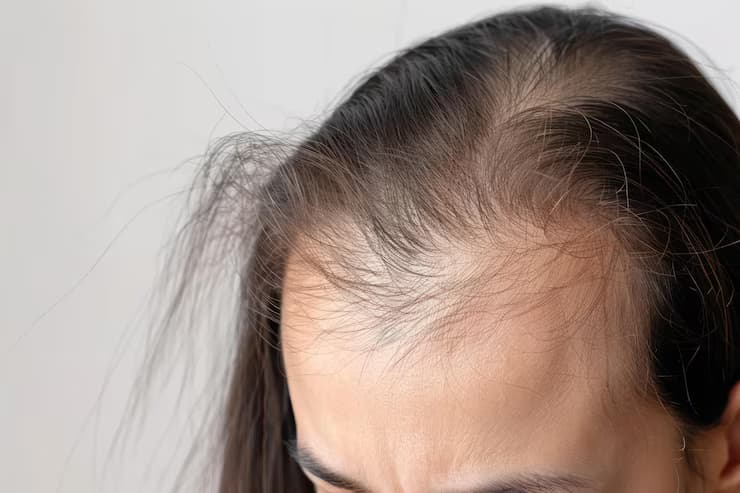Alopecia, a condition characterized by hair loss, affects many individuals in London and beyond. While there is no one-size-fits-all solution, numerous treatments can help manage and potentially reverse the effects of alopecia. Understanding these options can empower those affected to make informed decisions about their hair restoration journey. In this article, we will explore some of the top hair loss treatments available in London, focusing on their benefits, mechanisms, and considerations.
Understanding Alopecia
Before delving into treatment options, it's important to understand alopecia and its various forms. Alopecia can manifest in different ways, including:
Alopecia Areata: Characterized by sudden, round patches of hair loss.
Alopecia Totalis: Complete loss of hair on the scalp.
Alopecia Universalis: Total loss of hair on the entire body.
The severity and extent of hair loss can vary, influencing the choice of treatment. It's crucial to consult with a specialist to determine the type of alopecia and the most suitable approach for treatment.
Top Treatments for Hair Loss Due to Alopecia
Topical Treatments
Topical treatments are often the first line of defense for managing alopecia. These treatments are applied directly to the scalp and can include:
- Minoxidil: This medication is commonly used to stimulate hair growth and slow hair loss. It works by increasing blood flow to hair follicles, potentially revitalizing shrunken hair follicles and increasing their size.
- Corticosteroids: For alopecia areata, corticosteroids are often prescribed to reduce inflammation and suppress the immune system's attack on hair follicles. These can be applied topically or injected into affected areas.
Topical treatments are generally well-tolerated, but results can vary, and continuous use may be required to maintain benefits.
Oral Medications
Oral medications can be effective for managing alopecia, especially when topical treatments are insufficient. Key options include:
- Finasteride: This medication is typically used to treat androgenetic alopecia (pattern baldness) by inhibiting the production of dihydrotestosterone (DHT), a hormone linked to hair loss.
- Oral Corticosteroids: For more severe cases of alopecia areata, oral corticosteroids may be prescribed to reduce inflammation and halt the immune response attacking hair follicles.
Oral medications can have systemic effects and may not be suitable for everyone. It’s important to discuss potential side effects and benefits with a healthcare provider.
Hair Transplant Surgery
Hair transplant surgery is a more invasive option but can provide long-lasting results. Two common methods are:
- Follicular Unit Transplantation (FUT): This technique involves removing a strip of scalp from a donor area and dissecting it into individual follicular units to be transplanted to the thinning or balding areas.
- Follicular Unit Extraction (FUE): FUE involves extracting individual hair follicles from a donor area and transplanting them to the recipient site. This method generally results in less scarring and quicker recovery compared to FUT.
Hair transplant surgery can be highly effective, but it requires careful planning and consideration. A consultation with a specialist can help determine the best approach based on individual needs and hair loss patterns.
Platelet-Rich Plasma (PRP) Therapy
PRP therapy is an innovative treatment that utilizes the patient's own blood to stimulate hair growth. The process involves:
Drawing a small amount of blood from the patient.
Separating the platelet-rich plasma from other components of the blood using a centrifuge.
Injecting the PRP into the scalp in areas affected by hair loss.
PRP contains growth factors that can potentially promote hair follicle regeneration and improve hair density. Many individuals in London seek PRP therapy as a non-surgical option to enhance hair growth.
Low-Level Laser Therapy (LLLT)
LLLT is a non-invasive treatment that uses low-level lasers to stimulate hair follicles and improve hair growth. The lasers are thought to increase blood flow to the scalp and enhance cellular activity within hair follicles.
LLLT is typically administered using devices such as laser combs, helmets, or caps. While some studies suggest it can be beneficial, results may vary, and ongoing treatments may be necessary to maintain benefits.
Lifestyle and Dietary Changes
In some cases, lifestyle and dietary adjustments can support hair health and potentially reduce hair loss. Key considerations include:
- Balanced Diet: Consuming a diet rich in vitamins and minerals, such as iron, zinc, and biotin, can support overall hair health.
- Stress Management: Reducing stress through relaxation techniques or counseling can be beneficial, as stress is known to contribute to hair loss.
- Proper Hair Care: Using gentle hair care products and avoiding harsh treatments can help maintain the health of existing hair.
While lifestyle changes alone may not fully address alopecia, they can complement other treatments and support overall hair health.
Choosing the Right Treatment
Selecting the most appropriate treatment for alopecia in London involves considering various factors:
- Type and Severity of Alopecia: Different treatments may be more effective for specific types and stages of hair loss.
- Personal Preferences and Lifestyle: Factors such as the invasiveness of the treatment and potential side effects should be considered.
- Consultation with Specialists: Working with a dermatologist or hair restoration specialist can provide valuable insights and help tailor a treatment plan to individual needs.
Conclusion
It can be a challenging experience, but numerous treatments are available of Hair loss alopecia london to help manage and potentially reverse its effects. From topical and oral medications to advanced procedures like hair transplants and PRP therapy, there are various options to explore. By understanding these treatments and working closely with healthcare professionals, individuals can find the most suitable approach to address their hair loss concerns effectively.





Comments